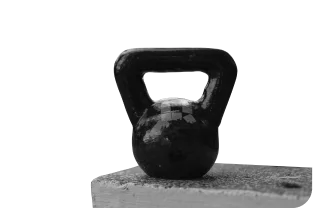Why Quick Fix Diets Fail: Understanding the Importance of Sustainable Weight Loss
Dec 10, 2024 ∙ 10 mins read

The global weight loss industry was valued at a staggering US $224 billion in 2021. By 2030, this number is predicted to reach an eye-watering $405 billion.
Whisper those numbers softly to yourself. This ought to tell you how much is at stake. Your weight is a matter of health to you, but to a global industry valued in hundreds of billions, it is simple economics.
So, it is in no one's best interests to fix you up and let you toddle off nice and happy with your weight. No fad diets can afford to work long term. A honeymoon period of initial weight loss, when you hit some of your weight loss goals, followed by a boost in energy levels might never translate to long-term success. In the short term, you will definitely experience some quick weight loss, enough to keep you satisfied.
But not for long, not in the long run.
Never fear - there is always another popular diet waiting in the wings. One that worked for the neighbour aunty's daughter's best friend, just in time for her foreign holiday, destination wedding, much to the envy of all.
A bit strong? May be, but having been in the industry for more than a decade and sticking to the same tried and true methods of sustainable practices leading to long-term health, we seem to be constantly waging a war against the allure of quick fixes. So, battling short attention spans and shorter patience, we have decided to shift our approach.
And resort to plain speaking.
1. Restrictive diets only work in the short term
Crash diets, GM diet, apple cider vinegar diet, cabbage soup diet (dear Lord but why?), everything but a balanced diet might lead to rapid weight loss for a short while. If short-term results are what you are in the market for, then you are on the right track. But they will not contribute to overall health.
In fact, depriving yourself of entire food groups because someone somewhere convinced you carbohydrates are Enemy number 1, will only result in feelings of deprivation.
2. Diet culture is reliant on you feeling inadequate

Remember that part about this being a global industry worth billions of dollars? Those dollars won't multiply themselves! Day after day, there is content aimed at demonising food, offering up a magic solution wrapped up in a shiny bow as the elixir to fix your life.
Weight loss supplements, tracker apps, weight loss apps, and in the recent years even hypnotherapy for guaranteed weight loss crop up literally the minute you open your phone and open a social media platform. Like hamsters on a wheel, by keeping us all perpetually dieting and careening from one "solution" to another, the machine can keep ticking on.
3. Chasing rapid results will lead to long-term health issues
The cost of these quick-fix diet plan may not be much in the short time - especially when they throw in attractive Black Friday sale discounts and bargains, but the long term implications of sustained deprivation will come home to roost much much later.
No one knows yet what happens to a body subjected to years of drastic diets. As long as the focus is on weight loss in the short run, no one is paying attention to 20, 30, 40 years down the line. Cognitive difficulties? Weakened immune systems? Autoimmune disorders?
Adverse effects could be wide-ranging in impact. Vitamin and mineral deficiencies, electrolyte imbalances, renal stones to depression, dementia, osteoporosis, hypoglycemia, hyperinsulinemia, other chronic and metabolic diseases!
4. Never turn to social media for help
The Internet is rife with misinformation. Looking to your favourite social media influencer for diet recommendation and weight loss guidance is a sure-fire way to end up getting caught up in unreliable, unverifiable or downright harmful methods and practices. Super foods smoothies and cayenne pepper water might look good, especially when set to trendy music and mood lights but they are not lasting solutions to a healthy body.
Jumping from one trendy diet to another also has a nasty side-effect: that of yo-yo dieting and weight cycling. Losing and gaining back the same 5-10 kilos is not only frustrating and dispiriting, it can lead to further weight gain and affect mental health. It might also cause you to lose muscle mass, mess with your hormones, impair your cardiac functions, and even lead you down the long winding road of disordered eating.
An approach backed by science and by healthcare professionals is the far more sensible approach to health in the long haul.
5. The secret to sustainable weight loss is....

Calorie deficit. There, that is the not-secret secret sauce to long-term weight loss and health. The totally unglamorous way to make long-term changes for your continued health can be summed up in two, simple words.
Every fad diet out there can be boiled down to this basic concept. Keto diet, paleo, carnivore, intermittent fasting, warrior diet, call it what you will - they all work when you eat fewer calories than your body needs. Couple that with an increase in activity level and bada bing, bada boom: weight loss!
But there is a significant difference between drastically cutting out food groups and following a structured and sustainable plan of reduced calorie intake. One works in the short term (6 weeks/months/years) and will bring you much joy. One is a lot more time consuming. It requires making sustainable changes to your life. Mindful eating, consuming whole foods, healthy fats, lean protein, complex carbs, adequate fluid intake. Regular physical activity and proper sleep.
Most arrestingly of all, this is it for your life.
Because the first step towards sustainable weight loss solutions is knowledge. When you learn why you are doing something and are willing to put in the time and effort to develop healthy habits, then you will be able to make positive changes that lead to a healthy lifestyle. You will jump off the fad diet hamster wheel, and take wobbly but eventually sure-footed steps towards long-term health.
No weight loss journey is linear. Our bodies are ever changing, reacting to the circumstances and situations around them. Medical conditions, emotional eating due to grief or other losses, hormonal imbalances, mental health, changes in stress levels all play a crucial role in our body weight. Regular exercise including strength training, healthy eating habits, stress management for mental well-being are all necessary to a healthier way of life.
Now that is something you can take to the bank!
Enjoy fat loss in a sustainable way, get in touch with our team today.






